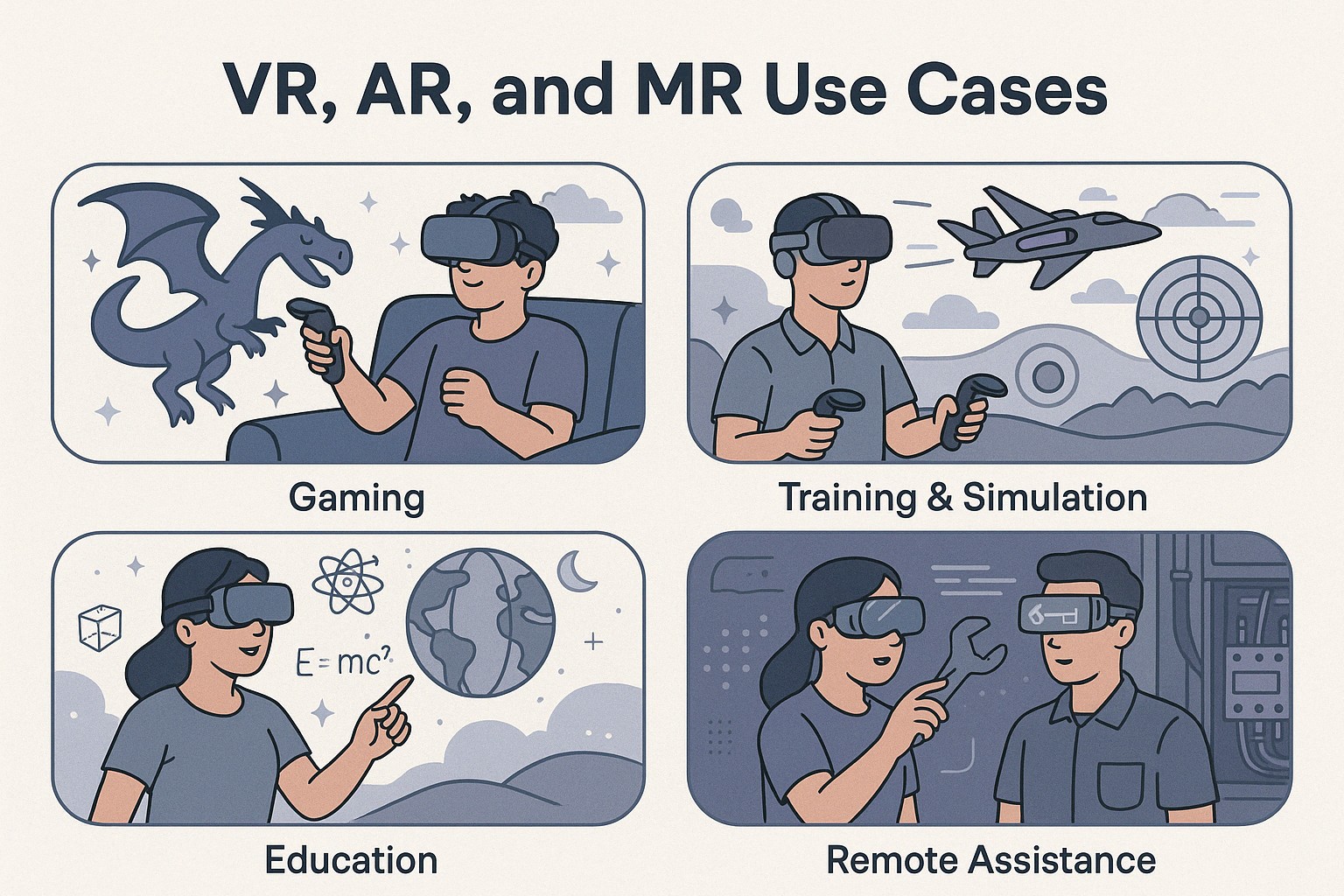
Extended Reality use cases are reshaping how modern businesses operate. From corporate XR training and immersive marketing to next-level product development, XR, an umbrella term that includes Virtual Reality (VR), Augmented Reality (AR), and Mixed Reality (MR) is delivering measurable results.
In this article, we’ll break down the top XR use cases across corporate training, marketing, and product development, so you can see where your company should invest next.
Learn more about XR developer roles and hiring strategies.
Companies now build interactive training environments in XR that simulate real-world scenarios safely. A VR training programme might teach warehouse safety, compliance, or machinery operation. These XR training solutions reduce costs and improve knowledge retention.
Benefits:
Global teams thrive in immersive collaboration environments. XR platforms like Spatial and ENGAGE XR create virtual offices where employees meet, brainstorm, and prototype together. These Extended Reality use cases foster creativity and reduce Zoom fatigue.
Businesses are embracing XR product prototyping to create, test, and refine 3D designs before production. From architecture to automotive, virtual product development helps catch flaws early and speeds up design cycles.
Immersive tech for business transforms traditional pitches into 3D product walkthroughs. Complex or large-scale products become tangible through XR, leading to better customer understanding and increased conversions.
Through augmented reality marketing, customers can try on clothes, visualize furniture, or size their shoes using just a smartphone. Retailers like IKEA, Sephora, and Nike are leading the charge in eCommerce AR innovation.
Say goodbye to static welcome decks. With virtual onboarding in XR, new hires explore culture, processes, and tools in an engaging, scalable way—ideal for hybrid and global teams.
Advantages:
Extended Reality use cases in marketing are giving brands new ways to connect emotionally. Fashion shows, immersive product launches, and gamified experiences are helping marketers deliver memorable XR storytelling.
Before launching a product, XR can be used to simulate usage and gather feedback. This immersive tech for business lowers risk, improves UI/UX, and saves money on physical prototyping.
Utilities, telecoms, and manufacturers now train technicians using Mixed Reality maintenance tools. Smart glasses overlay digital guides on real equipment, allowing hands-on learning without supervisors present.
Soft skills like leadership and empathy can be developed through XR simulations. These corporate XR training modules feature AI-driven role plays that adapt to user input, offering scalable, personalized learning.
Business value:
XR is driving transformation across industries. These Extended Reality use cases show how immersive technologies deliver value in training, marketing, and product development.
Want to bring these innovations to your business? Explore our XR work marketplace and connect with top freelance XR developers who can bring your ideas to life.
Leave Your Comment